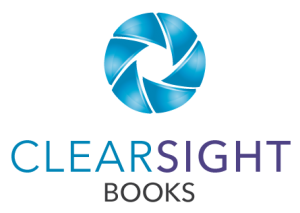 A few years ago, I had a get-to-know-you coffee with someone I’d met through networking. He consulted with professional service firms (law, accounting, etc.) about business growth. As tends to happen with me, the conversation turned to books.
A few years ago, I had a get-to-know-you coffee with someone I’d met through networking. He consulted with professional service firms (law, accounting, etc.) about business growth. As tends to happen with me, the conversation turned to books.
“I want to write a book,” he said. “I think it would help grow my business. But I have three different ideas, and I don’t know where to start.”
After probing to see if there was an obvious choice, I finally said, “You know, it really doesn’t matter. They’re all solid. Just start writing. Once you finish the first one, move on to the next.”
The Need for Focus on One Book at a Time
If writing is your main gig, you often have several writing projects going at the same time. Switching back and forth to different types of writing keeps your brain fresh.
But if you’re a consultant, coach, professional speaker, or other entrepreneurial leader, you have a core business to run. Writing is not your primary gig, so you have limited time and energy to allocate to it.
Fracturing your attention across multiple writing projects slows you down and makes it difficult to finish any of them. Most people find it best to choose one book topic, focus on that topic, and drive the book to completion.
Decision Making: Maximizing vs. Satisficing
My coffee date was having trouble making a decision about his book topic. In retrospect, I’d guess he was attempting to maximize his decision—to find the optimal solution, the perfect answer, the best book topic.
However, the endless assessment of alternatives can lead to analysis paralysis, overly long decision-making timelines, and second-guessing—all of which waste mental energy that could be better applied to writing!
In essence, what I suggested to him (in less elegant language) was satisficing. When your goal is to write a book to support your business, the criteria become fairly evident: 1) a relevant topic that 2) you know about and 3) your clients have an interest in.
In satisficing, you assess your options and pick the first alternative that satisfies your basic criteria.
That’s it. Don’t look for perfection; just look for something that checks the boxes. Remember: you can always write another book.
(The idea of maximizing vs. satisficing was developed by Nobel laureate Herbert A. Simon in 1956. Fascinating stuff—you can find plenty of information online.)
Not enough guidance for you? OK, let’s look at a few specific criteria that might help you choose your book topic.
Which book topic will sell the most books?
This question is a trap. For most entrepreneurs, ROI comes not from book sales but from increasing client load and fees. Yes, there are exceptions, but by and large, I suggest ignoring this question.
Which book topic best supports your business?
You could formulate this question several different ways:
- If you are concerned specifically about revenue: Which idea supports your highest revenue service? For example, your executive coaching may command a much higher rate than your new-manager coaching, so a book aimed at executives offers stronger leverage (though of course a business book can support more than one service).
- If you frequently hear, “You should write a book about…”: What is the underlying issue your clients are looking for help with? You are apparently already providing it in another form.
- If you are shifting business direction: Which idea builds credibility for your change in direction? Demonstrate how this new direction relates to your current expertise.
What is the logical progression of book topics?
Many consultants and coaches a have a core message or philosophy from which the rest of their work springs. If that’s the case with you, lay out your methodology in a foundation book, then write follow-up books that build on it.
For example, if you consult on organizational leadership, start with a book that articulates your leadership philosophy, Leadership. Build on that with Leadership for New Managers, Leadership for Middle Management, Leadership for Executives, Leadership for Nonprofits, and so on (but with better titles, please!).
TIP: If you do have an idea for a book series, map out the full series at a high level. As you write, keep refining and adding to the ideas.
Which book will be the easiest to write?
The answer depends on what “easiest” means to you; to me it generally means “fastest.” Variations include:
- Where do you already have deep subject-matter expertise? Chances are you will struggle less if you know your subject well.
- Where do you already have content? Consultants, trainers, and professional speakers likely have articles, workshops, speeches, or white papers that can be consolidated and repurposed into a book.
- Which topic requires the least research? Some topics you can write about based on personal experience and observation; others require more formal substantiation.
Which book topic calls to you emotionally?
Writing can be difficult—even agonizing—for many people. To maintain your interest and keep you focused, choose a topic that is fun or intriguing to you.
If you have emotional engagement with the book topic, you will have more energy to put towards it. It will be easier to start, easier to keep going, and easier to get to the finish line.
Once you finish one book and see you actually can do it, it becomes easier (though perhaps still not easy) to write the next book.
BONUS: If you are not excited about your topic, you run the risk of sounding dull. Writing on a topic that intrigues you allows your sparkling personality to come through more clearly.
The End of the Story
My coffee partner? His book is published, and by all reports his business is booming.
Need a little more help getting started? Read You don’t have to write THE book, just A book: Change your mindset so you can start.

